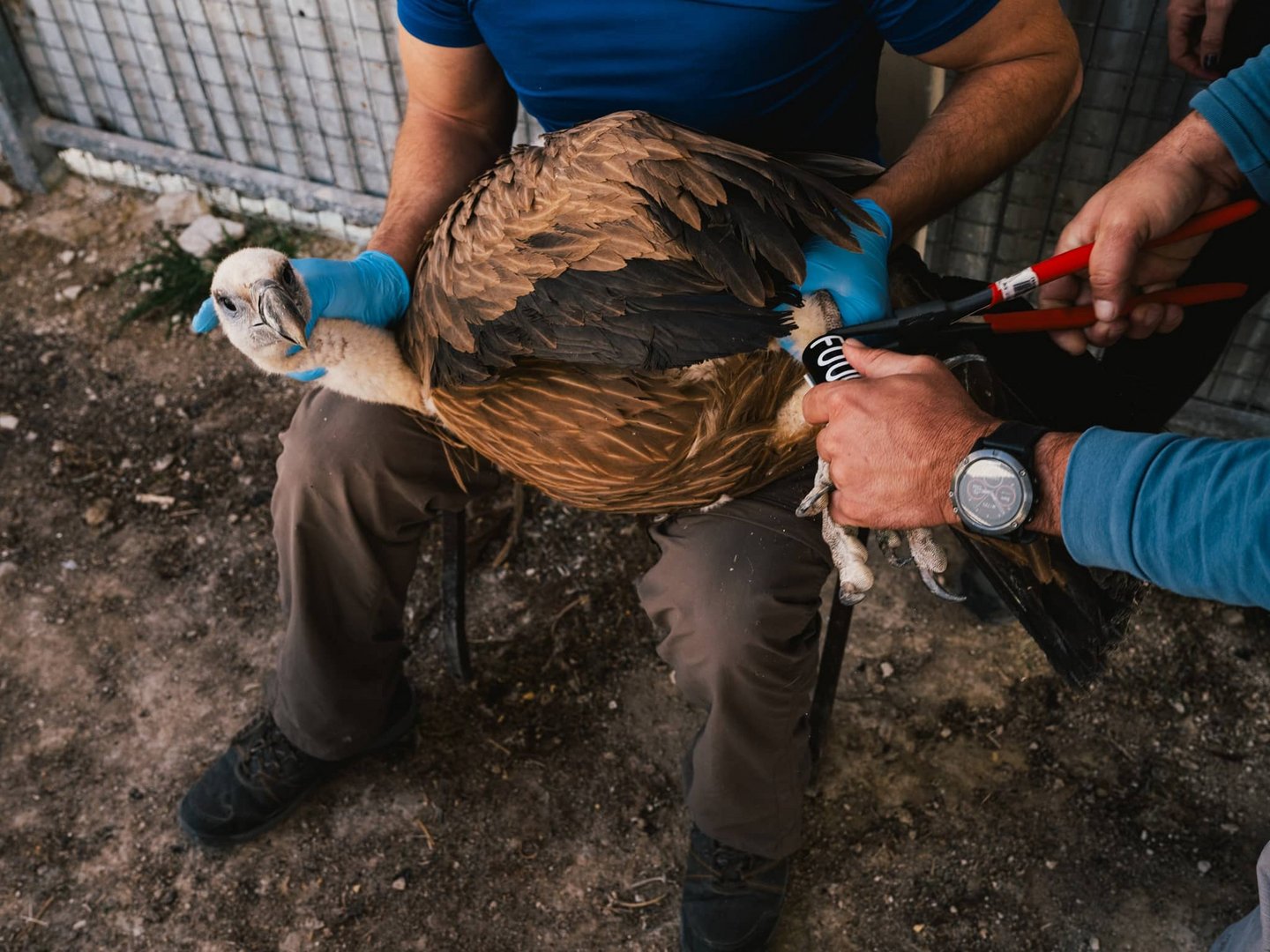Stiffer fines and punishments are necessary for people using poisonous agricultural products, as in the past three decades almost three dozen Griffon Vultures, a protected species, have been killed by these materials.
Experts said on Tuesday, in 27 years a total of 56 of the birds have been killed by ingesting poisonous agricultural products.
Last month, a further 15 Griffon vultures were brought from Spain to help bolster the population in Cyprus.
Speaking to the Cyprus News Agency, Game Fund collaborator Constantinos Antoniou said vultures have been part of the Cypriot ecosystem for millions of years and 60-70 years ago there were hundreds of them on the island. Today the population is only 29, while the 15 vultures that arrived from Spain are expected to be released in six to eight months.
Of the 29 vultures, 25 were introduced in previous years from Spain, while four are Cypriot or Cretan descendants who arrived in Cyprus under an earlier programme.
He said the main reason for their disappearance was pesticides.
According to BirdLife Cyprus data, between 1996 and 2023, 70 vulture deaths were recorded. Of these 56 were due to poisoning, four due to collision and electrocution with electricity cables, four from an unknown cause, three due to gunshots, two due to lead poisoning and one due to disorientation and exhaustion.
As noted by BirdLife Cyprus, for every animal found poisoned in the wild, many more are poisoned and never detected.
In May 2022, a mass poisoning incident in the Cypriot countryside resulted in the elimination of half the vulture population of Cyprus.
BirdLife Cyprus Programme Coordinator Melpo Apostolidou said in this particular incident a dead vulture carrying a tracking transmitter was found. After toxicology tests and an autopsy, it was determined that the cause of death was methomyl poisoning (the well-known pesticide lannate).
The next day the vulture colonies were checked, and the two nests were found to have dead chicks inside while a population census done in the following days showed nine birds were missing. Estimates at the time were that half the population of Cyprus had been lost.
Antoniou explained that vultures move together and once they spot a dead animal they all eat from the same one and if it is poisoned, they can perish en masse.
She explained that farmers who have a problem with foxes or hunting dogs may soak a dead animal with lanate to poison them, a practice which is prohibited. At the same time, the possession of these poisons is also prohibited, but there is a huge increase in their use, since they are illegally obtained from the north.
Also speaking about the vultures, the Paphos head of the Game Fund Charis Hadjistyllis said that the populations that arrive now will take four to five years to start reproducing.
As he said, it is mainly Spanish birds that have been imported to Cyprus in the last two years. There was, he added, a population of Cypriot vultures and vultures that came from Crete in the last ten years, which entered breeding status, but in the process all six parents were poisoned and Cyprus was again left without a breeding population.
Hadjistyllis noted that at the moment management measures are much improved, as the remote monitoring equipment is much more sophisticated and allows for the immediate detection of a vulture being poisoned.
Not only vultures but also eagles carry tracking transmitters.







Click here to change your cookie preferences